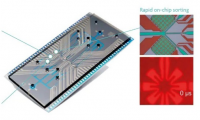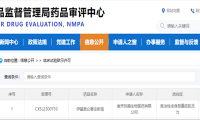-
Researchers identify genetic changes responsible for rare childhood immune disorders
- Source: drugdu
- 90
- June 3, 2024
-
Blood Test Measures Immune Response to Epstein-Barr Virus in MS Patients
- Source: drugdu
- 119
- May 28, 2024
-
Blood Test Measures Immune Response to Epstein-Barr Virus in MS Patients
- Source: drugdu
- 128
- May 27, 2024
-
Repertoire and Bristol Myers Squibb link on autoimmune disease vaccines
- Source: https://www.pharmaceutical-technology.com/news/repertoire-bristol-vaccines/?cf-view
- 71
- May 2, 2024
-
Startup Lands $150M for Delicate Dance Between Cancer Cells & Immune Cells
- Source: drugdu
- 88
- March 22, 2024
-
FDA Approves Fresenius Kabi’s Tyenne, a Biosimilar of Actemra for the Treatment of Autoimmune Diseases
- Source: drugdu
- 171
- March 11, 2024
-
Cell Sorter Chip Technology to Pave Way for Immune Profiling at POC
- Source: drugdu
- 91
- February 7, 2024
-
IASO Bio’s IND application for new autoimmune indication of Equecabtagene Autoleucel Injection approved
- Source: drugdu
- 89
- January 27, 2024
-
Immune checkpoint inhibitor target found to promote skin cancer growth
- Source: drugdu
- 99
- January 23, 2024
-
Takeda picks up 2nd FDA-approved indication for immune globulin treatment HyQvia
- Source: drugdu
- 153
- January 18, 2024
your submission has already been received.
OK
Subscribe
Please enter a valid Email address!
Submit
The most relevant industry news & insight will be sent to you every two weeks.













